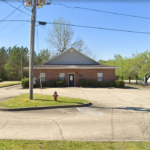All spring, the Texas and Oklahoma Legislatures grappled with workers’ compensation reform legislation in their respective states. The two have many similar issues, including high insurance costs, low return-to-work rates and inadequate medical services.
While a joint Texas House-Senate committee hammered out compromise legislation during the last week of the regular session, time ran out for workers’ compensation reform in Okla-homa’s legislature, and Lt. Gov. Mary Fallin predicted a special session would be needed to work on the issue.
Her prediction came true as Gov. Brad Henry called for more work on workers’ comp and a special session began May 27, at the closing of the state’s regular legislative session.
In late May, Fallin and Oklahoma Senate Republican leaders announced they were right when they predicted weeks earlier that Gov. Henry would attempt to “water down” workers’ compensation reform if the issue went to a conference committee instead of receiving an up-or-down vote in the Senate.
“I am disappointed but not surprised that we find ourselves at the eleventh hour without a meaningful workers’ compensation bill in front of us. There has been a lot of talk and posturing, but the trial lawyers are using the same game plan they used for lawsuit reform last year–delay and deliver a watered-down proposal at the last minute in a conference committee,” Fallin stated.
Senate President Pro Tempore Mike Morgan said he is confident the special session will result in legislation to save millions for Oklahoma businesses while preserving the rights of workers injured on the job.
“We were just so close to passing meaningful workers’ compensation reform that struck the balance of protecting the rights of injured workers and lowering the cost of doing business,” Senator Morgan, (D-Stillwater) said.
One of the sticking points is whether or not injured workers would retain the right to choose their own physicians in the final reform measure. Morgan had stated previously that Senate Democrats are unwilling to deny injured workers that right.
According to The Okla-homan, Gov. Henry charged the legislature with sending him a bill within a week after the start of the special session. An agreement in principle on workers’ comp reform reportedly had been reached as the regular session waned, but legislators did not have time to pass a bill before adjournment.
Meanwhile, in Texas, a conference committee made up of members of the House of Representatives and the state Senate worked out a last-minute compromise on workers’ compensation system reform that previously had stalled in the legislative process. The plan was approved over the Memorial Day weekend and sent to Gov. Rick Perry for his signature.
The Insurance Council of Texas congratulated the members of the joint conference committee, Gov. Rick Perry, Lt. Gov. David Dewhurst and Speaker Tom Craddick for their leadership in ending the standoff over legislation to reform the Texas workers’ compensation system. House Bill 7 will result in an improved workers’ compensation system, ICT said.
“HB 7 provides for medical networks, increased benefits and a new oversight process that will discourage fraudulent behavior. All of these things will breathe fresh air into a system that had waited far too long for a major overhaul,” said Steve Nichols, manager of the Workers’ Compensation Services at ICT.
Announcing the compromise, Lt. Gov. David Dewhurst praised committee Chairmen Todd Staples and Burt Solomons for their efforts.
“I applaud Senator Todd Staples and Representative Burt Solomons for their hard work over the eighteen months to reform a system that is integral to both the health of injured workers and the health of our Texas economy,” Dewhurst said.
Was this article valuable?
Here are more articles you may enjoy.


 Longtime Alabama Dentist Charged With Insurance Fraud in 2025 Office Explosion
Longtime Alabama Dentist Charged With Insurance Fraud in 2025 Office Explosion  Zurich Reveals Beazley Stake After UK Insurer Spurns Bid
Zurich Reveals Beazley Stake After UK Insurer Spurns Bid  Howden-Driven Talent War Has Cost Brown & Brown $23M in Revenue, CEO Says
Howden-Driven Talent War Has Cost Brown & Brown $23M in Revenue, CEO Says  Trapped Tesla Driver’s 911 Call: ‘It’s on Fire. Help Please’
Trapped Tesla Driver’s 911 Call: ‘It’s on Fire. Help Please’ 


